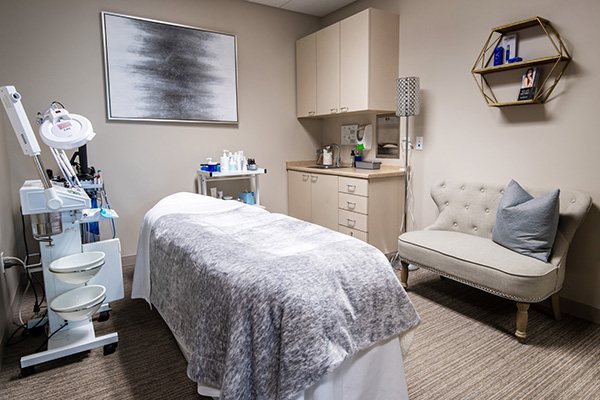
How to Get ready for Your Rhinoplasty Procedure: A Step-by-Step Guide
Rhinoplasty, frequently described as a "rhinoplasty," is a popular surgical procedure developed to reshape the nose for visual revision rhinoplasty or practical purposes. Whether you're considering nose surgery to improve your look or address breathing problems, preparation is crucial to making sure a smooth experience. This extensive guide will stroll you through each action of preparing for your rhinoplasty treatment, offering insights and useful tips important for success.
Understanding Nose surgery Surgery
What Is Rhinoplasty?
Rhinoplasty is a surgery that customizes the structure of the nose. It can include altering the size, shape, or percentages of the nose, as well as remedying functional concerns such as deviated septum.
Types of Rhinoplasty Procedures
Benefits of Rhinoplasty
- Improved facial balance
- Enhanced self-esteem
- Better breathing function
Evaluating Your Reasons for Surgery
Why Do You Want Rhinoplasty?
It's essential to reflect on your motivations for going through nose job. Are you looking for aesthetic improvement, or exist functional issues? Comprehending your factors assists set realistic expectations.

Consulting with a Surgeon
Schedule assessments with board-certified plastic surgeons specializing in nose surgery. Discuss your objectives and ask about their experience and outcomes.
How to Prepare for Your Nose Job Treatment: A Detailed Guide
Step 1: Research Your Surgeon
Choosing the right surgeon can significantly affect your outcomes. Search for:
- Credentials and board certification
- Before-and-after images of previous patients
- Patient evaluations and testimonials
Step 2: Understand the Expenses Involved
Rhinoplasty expense can vary commonly based upon several aspects:
- Geographic location
- Surgeon's experience
- Complexity of the procedure
|Element|Typical Expense Quote|| --------------------------------|----------------------|| Surgeon's Charge|$5,000 - $10,000|| Anesthesia|$600 - $1,200|| Facility Fees|$700 - $4,000|| Total Approximated Cost|$7,300 - $15,200|

Step 3: Schedule Preoperative Appointments
Your cosmetic surgeon might recommend particular tests or assessments with other experts (e.g., ENT medical professionals) prior to surgery.
Preparing Physically and Mentally
Physical Preparation Tips
To ensure optimal recovery after rhinoplasty surgery:
- Maintain a healthy diet plan abundant in vitamins and minerals.
- Stay hydrated before surgery.
- Avoid smoking cigarettes and alcohol intake-- a few weeks leading up to the operation.
Mental Preparation Strategies
Undergoing surgical treatment can be emotionally taxing. Consider participating in relaxation strategies like meditation or yoga to ease anxiety.
What to Anticipate During Your Consultation
Discussing Objectives and Expectations
Use this time to articulate what you wish to accomplish with nose surgery clearly. Your surgeon will provide feedback on what is realistically obtainable based on your facial anatomy.
Reviewing Medical History
Be prepared to reveal any medical conditions and medications you're currently taking-- this ensures your security during surgery.
Preoperative Instructions from Your Surgeon
Medication Guidelines
Your cosmetic surgeon will likely instruct you on which medications to prevent (e.g., aspirin and NSAIDs) that can increase bleeding risks.
Fasting Before Surgery
Typically, you'll be advised not to eat or drink anything after midnight before your surgery day.
Logistics on Surgery Day
Arranging Transportation
Since anesthesia might impair your capability to drive after surgery, set up transport home ahead of time.
What to Bring on Surgical Treatment Day
Consider packaging products like:
- Comfortable clothing
- Any required paperwork
- A book or music device for relaxation
Postoperative Care Essentials
Recovering in the house After Nose Surgery Surgery
Follow these guidelines:
Follow-Up Appointments with Your Surgeon
Regular check-ups are needed for keeping track of healing progress and attending to any potential complications.
FAQs About Rhinoplasty
1. What is rhinoplasty healing like?
Recovery can take a number of weeks; expect swelling and bruising initially however many people return to normal activities within a couple of weeks.

2. Will I have visible scars after rhinoplasty?
In open nose jobs, there may be small scars on the columella; nevertheless, they usually fade over time.
3. Can I use glasses after my procedure?
You ought to avoid using glasses for at least a couple of weeks post-surgery; consult your cosmetic surgeon for individualized advice.
4. The length of time do outcomes last?
Results are generally irreversible but may evolve slightly with time due to aging or changes in skin elasticity.
5. Is rhinoplasty safe?
Like all surgical treatments, it brings risks; nevertheless, problems are unusual when carried out by certified surgeons under sterile conditions.
6. Can I combine rhinoplasty with another procedure?
Many patients choose combined surgical treatments (like chin enhancement), however discuss this completely with your surgeon beforehand.
Conclusion
Preparing for a nose surgery procedure does not need to be intimidating when approached systematically-- comprehending what lies ahead is crucial! From choosing a skilled surgeon and handling expenses successfully to concentrating on both physical and mental preparedness-- each step plays an integral function in making sure effective outcomes from this transformative surgery. By sticking carefully to our extensive guide entitled "How to Prepare for Your Nose Job Treatment: A Step-by-Step Guide," you empower yourself with knowledge that cultivates self-confidence throughout this journey towards improving both type and function of one's most prominent facial function-- the nose!